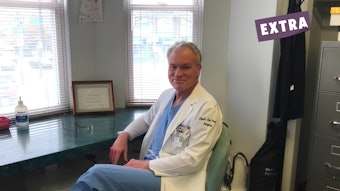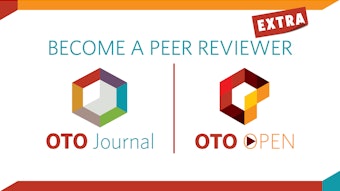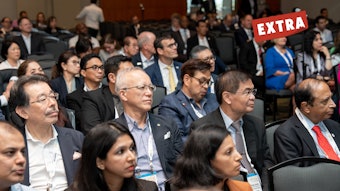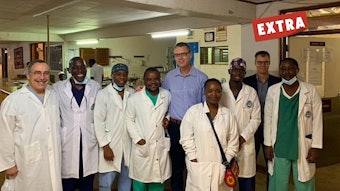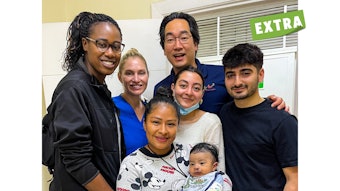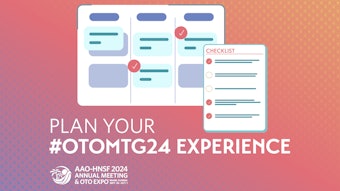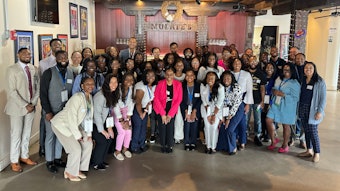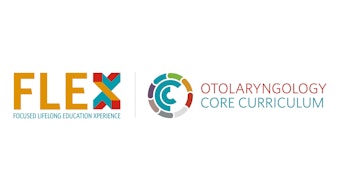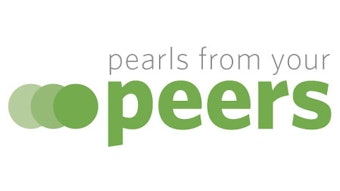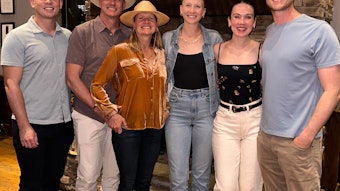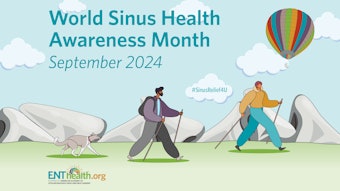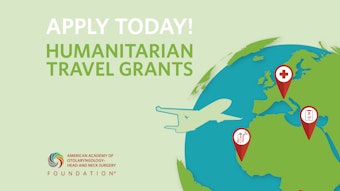Why Peer Review: An Interview with Associate Editor Chau T. Nguyen, MD
“There is pressure in academia in all parts of the world to produce research. But ultimately, we want to learn what is most relevant for our patients and the specialty when we open a journal.”
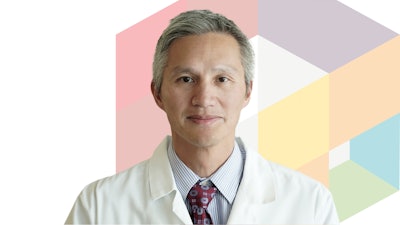
Chau T. Nguyen, MD, director of otolaryngology-head & neck surgery at the Ventura County Medical Center, and associate clinical professor at the University of California, Los Angeles, has served as Associate Editor of General Otolaryngology for the AAO-HNSF flagship journal, Otolaryngology–Head and Neck Surgery, (OTO-HNS) and its sister journal, OTO Open, since 2021. Dr. Nguyen caught up with the Bulletin to offer his advice on how to successfully dive into peer review and how he manages to balance patient care, academic pursuits, and personal wellness.
Share a little about yourself, your career, and your journey to working with the OTO journals as an Associate Editor.
I graduated from University of California, Los Angeles (UCLA) Medical School in 1999 and finished my residency training at the University of South Florida in Tampa in 2004. In 2011, I completed a two-year fellowship in integrative medicine. Currently, I practice comprehensive otolaryngology as the director of otolaryngology at a county hospital in California.
I began receiving and reading OTO-HNS during my training days. I’ve continued to attend the AAO-HNSF Annual Meeting most years and have had the opportunity to present on several occasions. A natural trait among clinician-scientists is curiosity, and the academic mission of the journal appeals to me in this regard. Patient care, along with teaching and research, is what drives me. I have been fortunate to partner with the UCLA Head and Neck Department as an associate professor to accomplish these goals.
I was recruited as a reviewer for the OTO journals in 2015 by then Associate Editor for Rhinology, Jivianne K. Lee, MD. In 2017, I became a Star Reviewer and joined the journal’s Editorial Board that same year. Currently, I’m serving as an Associate Editor for General Otolaryngology and Case Reports, a position I have held since 2021.
I am in the middle of my career, and it is a busy time juggling family (three kids under 17), work, and academic endeavors. It can be a difficult balance at times, but the key is commitment and finding time to take care of yourself. For me, cycling is an activity that has helped to keep me grounded and healthy.
Why did you choose to be actively involved with the journals and participate in peer review as part of volunteering your time to the specialty and patient care?
I count myself fortunate to be part of such a great discipline, and being a reviewer has many benefits: It’s a way to give back to the specialty, but also to learn about the latest research that our peers are conducting. Participating in peer review does take time, but you get to choose when you’re most available to do it, how often to do it, and which articles most pertain to your expertise and excite you. You can also receive category 1 continuing medical education (CME) credits for reviewing papers, something that we all need annually.
Can you talk about the value of protecting the quality of research published in the OTO journals to patient care and the specialty?
There is a lot of research being done, but not all of it necessarily needs to be published. There should be a vetting process—which is peer review. Through this process, we, as clinicians, scientists and academics, can benefit from the best research. We know that there are many so-called “predatory journals” that prioritize financial gain over review, and I have even read recently about predatory conferences! There is pressure in academia in all parts of the world to produce research. But ultimately, we want to learn what is most relevant for our patients and the specialty when we open a journal. This is where the value of collaboration among authors, peer reviewers, and journal editors comes into focus.
What are your guiding principles for peer review or acting as an Associate Editor?
As an Associate Editor, I try to keep an open mind about the research that is being submitted for review. I lean heavily on our dedicated base of reviewers. I am grateful to them and the authors who have entrusted us with reviewing their work. The chief question for me when deciding whether a paper should be accepted is often, “So what?” Why is this work important? Does it meaningfully advance otolaryngology patient care and our field?” This answer, of course, involves some subjective judgement. But I also know my own suggestions and recommendations will ultimately be further reviewed and decided upon by our Editor-in-Chief, Cecelia E. Schmalbach, MD, MSc, who carefully curates every issue of the OTO Journals.
What encouragement and advice would you give to your peers to consider becoming a reviewer?
Reviewing is rewarding! You get to learn about novel ideas, pathologies, and treatments (among other topics), improve papers that will ultimately benefit the authors and our peers if they are published, and receive CME credit. It is a great way to give back to the specialty that has taught us so much.
I had a lot of trepidation prior to becoming a reviewer. What did I know about reviewing? Thankfully, there are guidelines as you input your review that help you to focus on the merits or lack thereof of the paper you are reviewing.
And, consciously or not, you are informally reviewing every paper you read in a journal. It is simply that in a formal review that process of thinking through the paper is written down as comments and suggestions. What is valuable about this paper? What needs work? Are the figures and tables easy to read and appropriate? Do the references seem well researched? If you are interested in peer reviewing, contacting the journal can be a great way to start.
There is a time commitment, but a good review does not usually take more than a few hours. And, again, as a reviewer, you get to work on the articles that interest you and when you are most available to review. Even reviewing a few times a year is a tremendous help to the journals and to our specialty.
